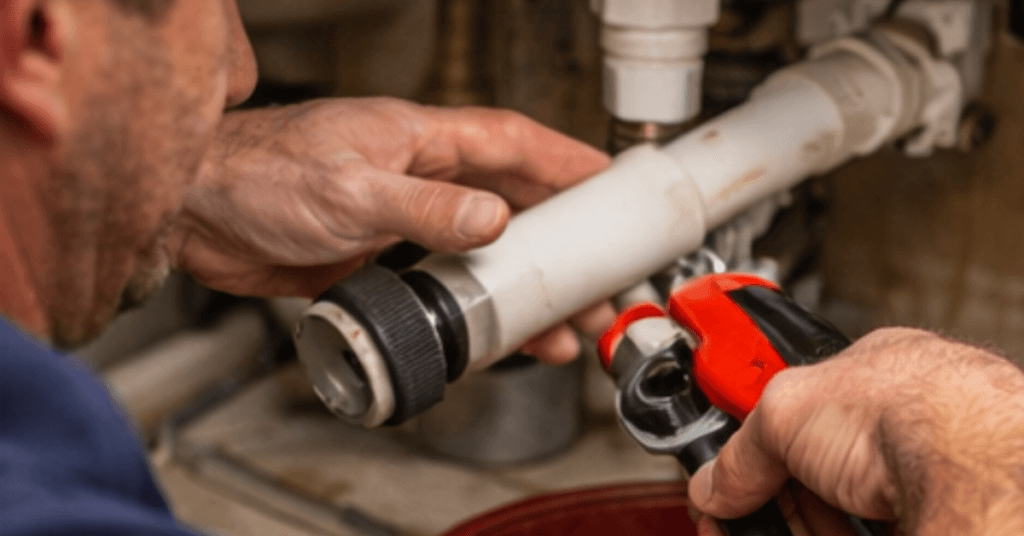
If you live in Central Oregon, there’s a good chance you’ve experienced the telltale signs of hard water—spots on your dishes, soap that doesn’t lather well, or stubborn buildup around faucets. While it may seem like a minor inconvenience, hard water can have serious impacts on your home, plumbing system, and even your health over time.
In this guide, we’ll break down what hard water is, why it’s so common in Central Oregon, and the most effective ways to treat it—all backed by trusted data from the U.S. Environmental Protection Agency (EPA).
What is Hard Water?
Hard water is simply water with high concentrations of dissolved minerals—mainly calcium and magnesium. While these minerals aren’t harmful to drink, they can cause scale buildup in pipes, reduce appliance efficiency, and shorten the lifespan of your plumbing fixtures.
The EPA notes that water hardness is measured in milligrams per liter (mg/L) or grains per gallon (gpg). Water with more than 121 mg/L (7 gpg) is considered “hard,” and anything above 180 mg/L (10.5 gpg) is “very hard.”
Why Central Oregon Has Hard Water
Central Oregon’s geological makeup is the main culprit behind its hard water. The region’s water supply often comes from underground aquifers and wells that pass through limestone and volcanic rock, which naturally leach minerals into the water.
This means that whether you live in Bend, Redmond, Prineville, or Sisters, you’re likely dealing with water that’s at least moderately hard. Even if your water is treated by a municipal system, mineral content remains high because treatment plants focus primarily on disinfection, not mineral removal.
Signs You Have Hard Water in Your Home
Hard water doesn’t always require lab testing to detect—many signs are visible in daily life. If you’ve noticed any of the following, hard water could be to blame:
- White or chalky buildup on faucets, showerheads, and sinks
- Spots or film on glassware after dishwashing
- Stiff or scratchy laundry even after washing
- Dry skin or hair after bathing
- Reduced water pressure over time
- Appliances like dishwashers and water heaters wearing out prematurely
How Hard Water Affects Your Plumbing
The biggest concern with hard water isn’t just cosmetic—it’s the scale buildup inside your plumbing system. Over time, these mineral deposits can:
- Narrow pipes and restrict water flow
- Force your water heater to work harder, increasing energy bills
- Lead to costly repairs or full pipe replacement
- Shorten the life of fixtures and appliances
According to the EPA’s Water Quality Guidelines, scale buildup can also harbor bacteria, which can affect water safety in extreme cases.
The Best Ways to Treat Hard Water
While hard water is a fact of life in Central Oregon, it’s not something you have to live with permanently. There are several treatment options depending on your needs, budget, and whether you want whole-home or point-of-use solutions.
1. Water Softeners (Whole-House Solution)
Water softeners use an ion-exchange process to replace calcium and magnesium with sodium or potassium, effectively eliminating hardness. They’re the most common and effective solution for hard water in Central Oregon homes.
With a professional installation from a trusted company like Einstein Pros Plumbing, your water will feel softer, and appliances will last longer.
2. Salt-Free Conditioners
If you want to avoid adding sodium to your water, salt-free conditioners can prevent scale buildup without removing minerals. These systems neutralize minerals so they can’t stick to pipes or fixtures.
3. Reverse Osmosis (RO) Systems
For drinking and cooking water, an RO system can filter out not just hardness minerals, but also other impurities. This is ideal if you want the purest possible water at specific taps in your home.
4. Regular Maintenance and Descaling
Even if you install a treatment system, regular plumbing maintenance is key. Scheduling an annual inspection with Einstein Pros can help ensure your pipes remain free of damaging buildup.
Cost vs. Long-Term Savings
Some homeowners hesitate to invest in water treatment because of the upfront cost, but the savings can be significant:
- Lower energy bills (due to more efficient water heating)
- Fewer appliance replacements
- Reduced plumbing repair costs
- Extended lifespan of fixtures
In many cases, a water softener can pay for itself in 3–5 years.
Testing Your Water
If you’re unsure how hard your water is, start with a simple water hardness test kit, which you can find at most hardware stores. For more accurate results, consider a professional water test from Einstein Pros.
Knowing your water’s exact hardness level allows you to choose the right size and type of treatment system.
Final Thoughts
Hard water is one of the most common household water issues in Central Oregon, but it’s also one of the most treatable. By understanding its effects and taking proactive steps—whether through a whole-house water softener, point-of-use filtration, or regular maintenance—you can protect your plumbing, save money, and enjoy better water quality every day.
For professional advice, installation, or maintenance, reach out to Einstein Pros Plumbing. With years of local experience, we understand Central Oregon’s unique water challenges and can help you find the perfect solution for your home.